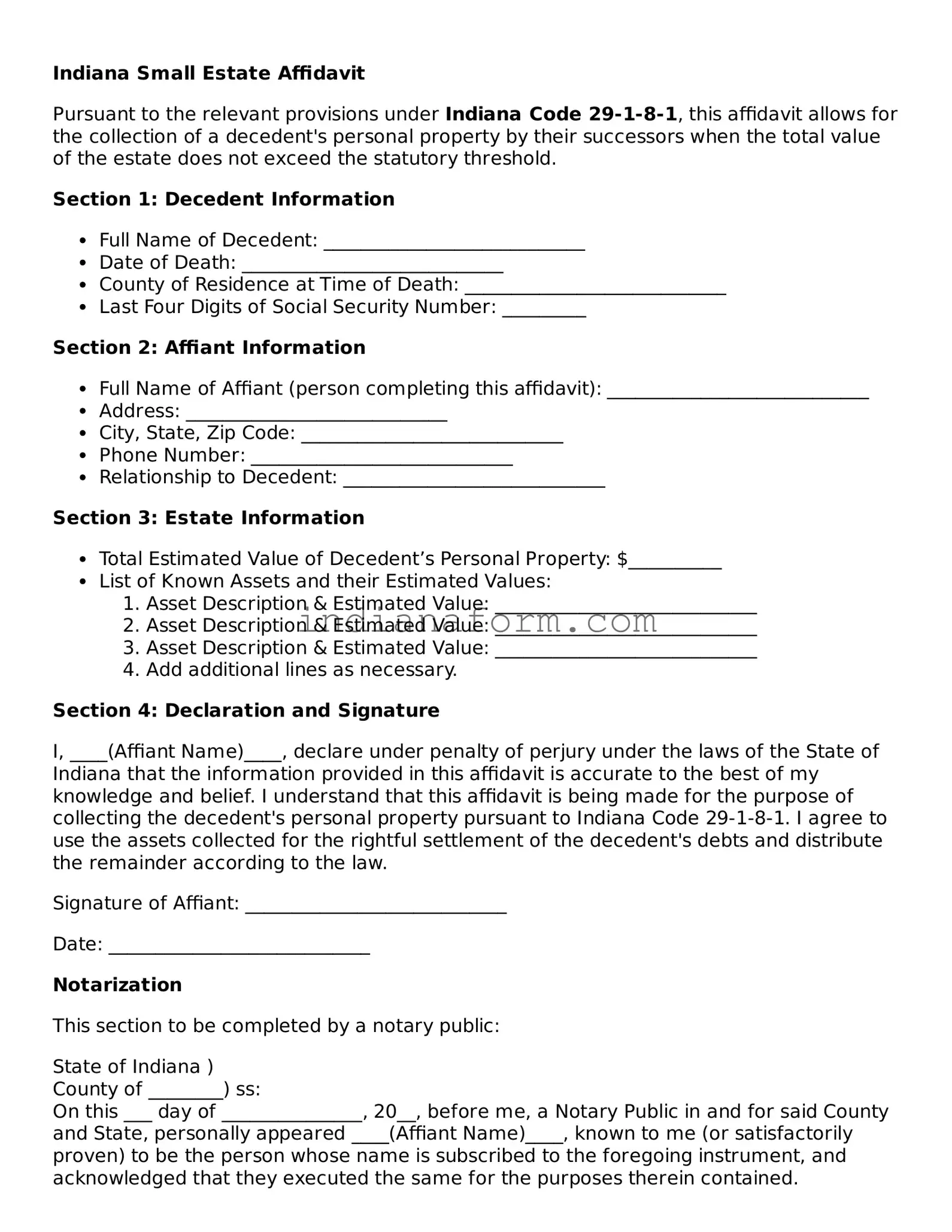Indiana Small Estate Affidavit Template
The Indiana Small Estate Affidavit form is a legal document used when a person passes away without a will, and their assets are considered to be of a 'small estate' by state standards. This form allows the estate's assets to be distributed without the need for a lengthy probate process. Filling out and submitting this form correctly is crucial for heirs or beneficiaries to gain access to assets designated for them.
Fill Out Your Document Online

Indiana Small Estate Affidavit Template
Fill Out Your Document Online

Fill Out Your Document Online
or
⇓ Small Estate Affidavit PDF Form
Don’t stop halfway through your form
Edit your Small Estate Affidavit online and get it downloaded.